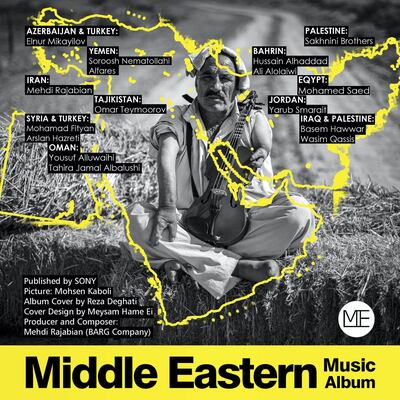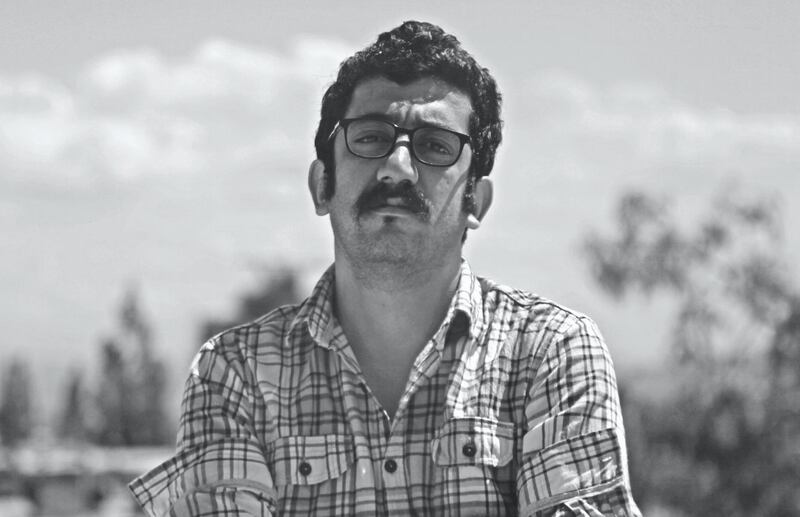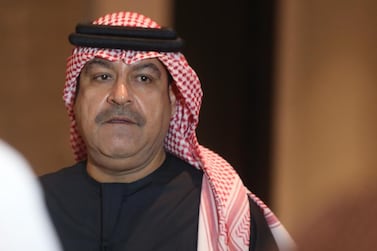At the age of 17, Mehdi Rajabian had a bright future ahead of him, as both an activist and a multi-instrumentalist. Living in Mazandaran in northern Iran, he had even founded his own company and website, Barg Music, which put out records by solo female artists – who are forbidden from singing on their own in the country – and where aficionados could discover and listen to alternative sounds.
But almost six years ago, his world was turned upside down. On October 5, 2013, Rajabian, then 22, was arrested by the country's Islamic Revolutionary Guard and sent to Tehran's notorious Evin prison. He was accused of insulting the values of Islam and spreading propaganda against the regime.
Who is Mehdi Rajabian?
Rajabian was arrested shortly after he released the album, History of Iran Narrated by Setar. The Setar, an Iranian lute, is Rajabian's main instrument. When explaining the album on his Facebook page, Rajabian said it was about the "absurdity" of the Iran-Iraq war. He was indicted of co-operating with "underground" singers in Iran. The IRG shut down his studio, banned the album and confiscated all hard drives that contained tracks off it.
"In Iran, anything in art can be a crime," Rajabian tells The National. Like Rajabian, many creatives around the world do not have artistic freedom. Last year, 60 artists were imprisoned in 13 countries, according to a report by NGO Freemuse, which defends artistic freedom. Nine of those were detained in Iran.
The conditions in Evin were horrendous for Rajabian. He was put in solitary confinement for three months and had to share cells with drug dealers and other criminals, with no access to basic services such as medical treatment.
As the situation worsened, Rajabian went on hunger strike to protest his sentence. After more than a month on strike, he lost 15 kilograms, his kidneys were damaged and he started vomiting blood. One of his friends, Vahid Nasiri, another activist who was also on hunger strike, died of starvation in December 2018. Rajabian feared he would die, too, he says, but Iranian authorities eventually gave in to international pressure and released him on bail.
From Johnny Depp to Ai Weiwei: Rajabian's famous supporters
Although not many Iranian artists supported Rajabian, fearing punishment by the regime, there was strong support for him from outside the country – the view being that his jail sentence was unjust.
Mehdi Rajabian and Zehra Dogan in the Peace in Middle East project (a mixture of music and painting)
— Mehdi Rajabian (@Mehdi_Rajabian) May 18, 2019
@zehradoganjinha pic.twitter.com/WwqAEay2Et
Organisations such as Amnesty International and Freemuse fought for his release as part of the "Art Is Not A Crime" campaign, supported by celebrities including actor Johnny Depp, singer Peter Gabriel and artist Ai Weiwei. Rajabian spent more than two years in jail, three months of which were in solitary confinement, before he was finally released. "I think a human being shouldn't experience two things in their lives. One is solitary confinement, which kills one's soul, and the other is hunger strike, which kills one's body," he says.
An album featuring 100 musicians from the region
When he was in jail, Rajabian came up with the idea for his new album, Middle Eastern, which was released by Sony Music last month. The album features some 100 musicians from Iran, Turkey, Yemen, Palestine, Syria, Lebanon, Iraq, Jordan, Oman, Egypt, Bahrain, Tajikistan and Azerbaijan. Rajabian connected with them via the internet after he left prison, as he is forbidden from travelling overseas.
The album is a rich tapestry of sounds. It features Alfares from Yemen, Tajik musician Omar Teymoorov and the Sakhnini Brothers from Palestine, among others. There are 11 tracks and each has its own distinct mood. "I feel like in this period of time and history, Middle Eastern countries needed a project like this and this had to be done with a Middle Eastern point of view, from each of its different countries, and in Middle Eastern languages, because our philosophy required this," he says.

Even the visual artists who worked on the record, Turkish painter Zehra Dogan and photojournalist Reza Deghati, who designed the cover, spent years in jail in Turkey and Iran for their art. Dogan was sentenced in March 2017 for painting the destruction of a predominantly Kurdish town, with Turkey's flag flying over the rubble. Her imprisonment prompted international outcry, including a 2018 mural by British street artist Banksy in New York.
What is the album about?
Rajabian says the message of the album is anti-war and that the record is supportive of human rights. “Our musicians have never met each other, but if you listen to the songs, you’ll realise their atmosphere carries the same feelings, and this shows the common pain of our people. At least we managed to get our voice to the world with music as our weapon,” he says.
"The Middle East needs inner peace, whether it's human rights violation or war, oppression, matters of freedom or such. As a musician I have to carry this call along with all the countries of this land, through music. Because music is a common language, and is a good excuse to unite our nations to carry a message of peace together."
The musicians featured on the album have different stories of hardship. Alfares made music even though he was living in abject poverty. Another musician who cannot be named for legal reasons, crafted one of the song's melodies while he was at sea, escaping his country by boat.
A book accompanying the album will also be released soon, says Rajabian. Although it has not been finalised, he says it will consist of a mix of music, painting, dance and photography. "Peace has a very prominent part in this album. This is what our people really want. On the other side, for someone like me who is totally banned in his country, making music is a way to fight for the freedom of music and art."
'I chose my path years ago, and the important thing for me is to create art'
The album starts in Turkey and ends in Iran, telling a story. “For me, the message and story of music are always important. Zehra Dogan’s paintings, of course, contribute to the story of the project so that we can more easily deliver our message.”
Rajabian is now 29. Although he is out of prison, he could still be put behind bars again at any time, as he is on a three-year suspended sentence. As well as being forbidden from travelling, he is also not allowed to study. "Iranian authorities isolate individuals like me so we can only stay at home. As for the regime's pressures, people are afraid of talking to me, so this results in a deprivation of everything," he says. "In or out of prison, it doesn't make much difference because I'm restricted and homebound in both scenarios. I chose my path years ago, and the important thing for me is to create art so I can inject my artistic thoughts into society."
The fact Rajabian was able to come up with the idea of the album in prison shows that art cannot be suppressed. “If I get arrested again for this album, I’ll work on my next project in prison,” he says. “I fight through creating music – and music can never be stopped.”






